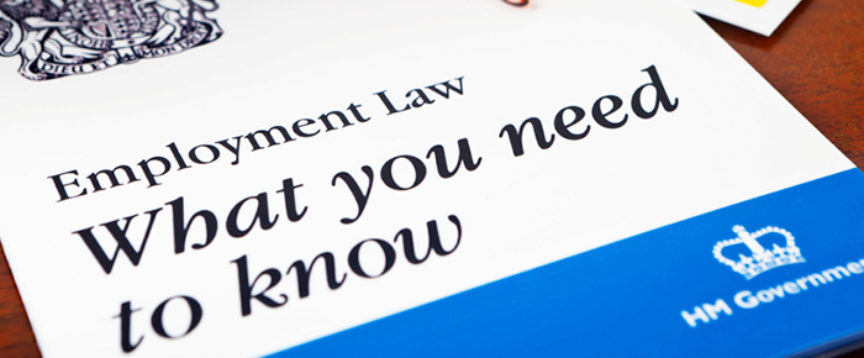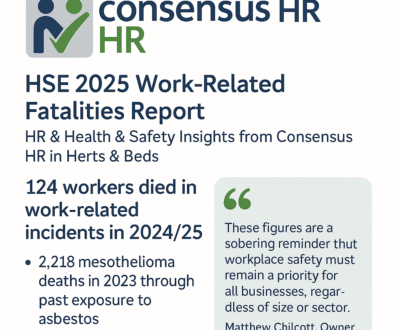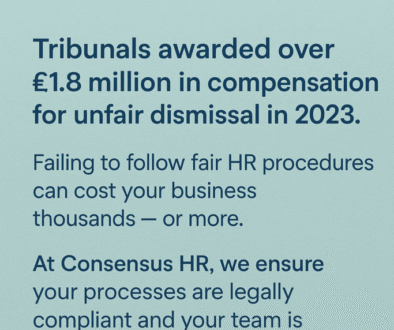Mental Health in the workplace
On the 7th October we wrote a blog in relation to World Mental Health Day and the theme for this year set by the World Federation for Mental Health, was ‘making mental health and wellbeing for all a global priority’.
Our Chartered Institute (CIPD) recently published a more detail article as shown below:
Since 1992, 10 October has been marked around the globe as ‘World Mental Health Day’. This day is aimed at raising awareness and is led by the World Federation for Mental Health and the World Health Organisation (WHO). Now it is that time again, employers should take this as a reminder to assess the measures within their organisation to support their people

Legal position
By law, employers have a “duty of care” to do all they reasonably can to support employee health, safety and wellbeing. This includes: making sure the working environment is safe; protecting staff from discrimination; and carrying out risk assessments.
Tips for dealing with mental health discrimination in the workplace:
Mental health discrimination
Discrimination due to mental health can be a little difficult to define because, while mental health isn’t directly a protected characteristic, disability is.
The Equality Act 2010 defines a disabled person as someone with a physical or mental injury. It must be substantial or long term (likely to last more than 12 months) and affect their ability to conduct day-to-day activities.
So for discrimination based on mental health to be unlawful, the mental health issue needs to fit the definition of a disability. The employer also must know — or be reasonably expected to know — about the disability.

Mental health support at work
In its guidance on mental health support at work, ACAS (The Advisory, Conciliation and Arbitration Service) outlines that if employees have mental health issues, employers must take them seriously, and be ready to talk about what is wrong and how they can help.
Below are some further tips for avoiding disability discrimination at work:
- Re-evaluate all policies to ensure no groups are discriminated against or lose out unfairly.
- Managers and supervisors to be trained to recognise discrimination, know how to assess changes to ensure that discrimination does not occur and know what steps to take if it is reported.
- Implement or review a harassment policy and ensure it is communicated.
- Consider if anything needs to be done to improve work, so that employees feel able to discuss mental health issues in a supportive environment.
Failure to make reasonable adjustments
The Equality Act 2010 requires employers and service providers to make reasonable adjustments if an employee is at a substantial disadvantage compared to other people who do not have a mental health problem. The adjustments — for example, counselling, flexible working hours, a change in duties — should aim to remove any disadvantage suffered but should be realistic in balancing cost, effectiveness and practicality.
Adjustments should be made in consultation with the employee and be specific to their needs. It might be worth getting an occupational health assessment for advice if you have the resources.
Creating a safe environment for communication
For small businesses, creating a workplace culture that includes regular wellbeing conversations with employees can boost productivity and increase staff retention.
The stigma of mental health can be an elephant in the room, particularly when workers are not sure how their employers will react, whether they will be “judged” or if they will be treated differently.
Some 30% of employees report not feeling comfortable about talking to their bosses about mental health issues, let alone asking for advice or guidance. It is important that they do not suffer in silence. On the other hand, some staff prefer anonymity and digital surveys can help the more introverted to make their feelings known.
Situations most conducive to open discussions are where: mental and physical health are treated as equally important; employees have regular one-to-one meetings with their managers to talk about problems; and positive mental health is encouraged, for example through mental health awareness training or the appointment of mental health “champions”.
Takeaways
Poor mental health is a major problem as both employees and companies struggle with personal, financial and work-related issues driven by soaring costs, debt and employment security worries, unstable world politics and spiralling energy prices.
Matthew Pinto-Chilcott – Owner of Consensus HR comments: “Employers, Line Managers and members of the team in general all need to play their part in relation to mental health and Health in Safety in general as outlined in the Health and Safety at Work Act 1974. All members of the team should ensure that the correct action is taken, should they be concerned for an individual, whether this is by personally speaking to them or highlighting it to a member of management. Extra care should be taken to ensure that the individual concerned is not made to feel that they are being spoken about or treated differently but communicated with passionately and offered any support if needed and the correct professional medical advice sought.”




